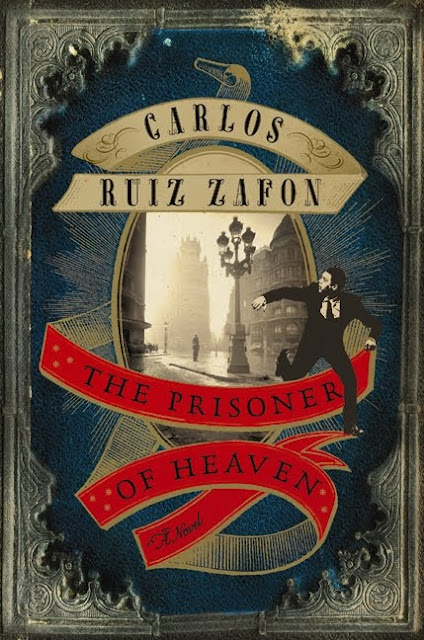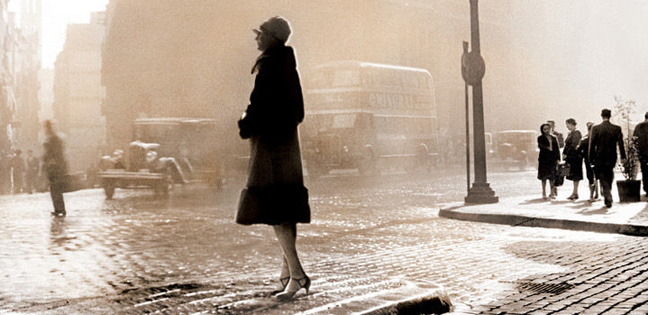Or Shadow of the Wind
Part 3, or Cemetery of Forgotten
Books vol III, or Angel’s Game Part 2.
Whatever it is called, it is Carlos Ruiz Zafon’s third book in a gothic series
relating Barcelona post-Spanish-Civil-War to a family struggling to maintain a
bookstore, a real awesome cemetery of forgotten books (which is like a library
of Holy Grail conditioned books
banished from contemporary society for any number of reasons), and the Sempere
family. Though the series started out with one of the best books of the last
ten years, and I am not exaggerating to reinforce my point on the other two,
the books that followed just didn’t seem to contain the same awesome
crime-mystery-thick plotlines with great points on the wickedness of people
keeping secrets, the twisted nature of war and its longterm affects, and the
general magic with which Zafon writes. It was almost as if the second two were
written by another person trying to cash in on the fame of the writer of the
first one.
Anyway, this book deals a lot with the same family we were
introduced to in the first book, only at a much later time. Daniel is all grown
up now and is a father. Fermin is looking to get married to Bernarda and the
bookstore is, predictably, struggling. Fermin’s wedding prompts the issue we
were introduced to in the first book but didn’t worry too much about, his fake
name. His lack of real identity. His true identity cannot be known because he
changed it during the civil war and for all intents and purposes became this
Fermin Romero de Torres.
So he tells Daniel why he did it, and that story becomes the
plot, or most of it, for this book. It covers his time in prison during the
conflict (or shortly after the war, I am not really familiar with the history
of Spain), and his time in a cell across from the guy who is the main character
of the second book. Not only does this plot totally try to mindfuck what the
reader thought was going on in the second book (if you haven’t read it yet, The Angel’s Game, don’t bother, as The Prisoner of Heaven suggests none of
it happened that way anyway), but it also weaves its way into about a 100pg
section recreating the prison scene of The
Count of Monte Cristo.
Don’t get me wrong, I completely agree with Mr. Ruiz Zafon, The Count of Monte Cristo is one of if
not thee greatest book written in
modern literature. But you can’t just take a scene from it (which, since it’s a
1,000 pg book, each scene is a novel or novella in itself) and use it as the
plot for a modern day book. It just doesn’t work. It also doesn’t if you’re
trying to tie into another book in your series but without really tying into
it, just saying “that whole time you that this
was happening…well that was
happening.”
Aside from all my whining, it is a good book, just with a
weak plot. Its greatest flaws are that Carlos Ruiz Zafon wrote an absolutely
mind-blowingly good novel in Book I of this series, The Shadow of the Wind, and each book since has disappointed fans
of him and the series; and other flaws include the aforementioned Alexandre
Dumas tribute gone wrong and a plot that just doesn’t amount to much. I meant
the villains in the story meet unexpected ends but not in a way you’d dramatically,
climactically hope for, especially after reading The Shadow of the Wind.
 |
| And apparently, Carlos is Espain's answer to Karl Pilkington |
My ultimate review comes down to this: Read the series thus far in reverse. And let me
know, when you get to The Shadow of the
Wind, if you liked it as much as me. Seems you will, as each book will
build to that magic moment in literary history (it was good beyond
description…every sentence was so well thought out and placed and written I
couldn’t do it justice with a review here, honest!), until you reach the punch
line or “ah-ha!” moment of it all. Just, someone, for the sake of literature
and recommendations, please try it. So I can know if that’s how I should
recommend these books to friends. Because I have unfortunately made a friend
read The Shadow of the Wind not long
after I read it and he still has not picked up a copy of the others. I could be
ousted as a good source of recommendations if I tell him to continue the
series…











.jpg)

